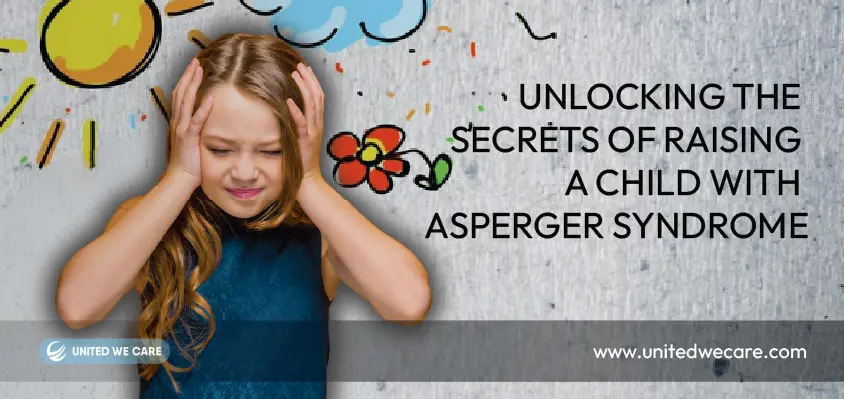Introduction
Raising a child with Asperger Syndrome can be a challenging experience. Asperger Syndrome, which falls under the umbrella of Autism Spectrum Disorders (ASD), is characterized by difficulties in social interaction, repetitive behaviors, and a narrow range of interests. Understanding and addressing these challenges can significantly improve a child’s development and well-being. This article will explore what Asperger Syndrome is, the challenges parents face, and strategies to overcome these challenges.
What is Asperger Syndrome?
Asperger Syndrome is a neurodevelopmental disorder named after Hans Asperger, an Austrian pediatrician who first described the syndrome in the 1940s [1]. Individuals with Asperger Syndrome typically have average or above-average intelligence but face challenges in social interaction, experience difficulties in communication skills, and exhibit repetitive, restricted, and stereotyped behavior patterns. Earlier, Asperger syndrome was considered a separate diagnosis but is now included within the autism spectrum [2].
Children with Asperger Syndrome often exhibit intense interest in specific subjects, which they may study in great detail. They appear to be experts in these topics, almost like “little professors” and engage in long-winded conversations around these [1]. Other behavioral and emotional symptoms may be present, including resistance to change, inflexible adherence to routines, atypical responses to sensory stimuli, heightened emotional reactions, difficulties with attention regulation, and peculiar eating habits [2]. Additionally, they may engage in repetitive behaviors, such as hand-flapping or lining up objects.
Their difficulties make it challenging for them to form and maintain friendships. It can also be difficult for the parents and family members to understand their needs and cope with these difficulties. Parents often face numerous challenges and may feel overwhelmed when dealing with a child with Asperger Syndrome.
What are the Challenges in Raising a Child With Asperger Syndrome?
Parents who have children with Asperger Syndrome or Autism encounter significant hardships when it comes to managing difficult behaviors, facilitating their child’s communication development, teaching essential life skills, ensuring their child’s safety, and preparing them for adulthood. Some of the common challenges include [3] [4] [5]:
- Communication Issues: Parents often face obstacles when it comes to communication, as deciphering their child’s verbal and non-verbal cues can be difficult. Additionally, limited or delayed speech in children can make it difficult for parents to establish effective communication and connect with their children.
- Struggles with Symptoms of the Disorder: Parents may find it challenging to navigate the various symptoms associated with autism. These can include repetitive behaviors, sensory sensitivities, difficulties in social interactions and relationships, intense focus on specific interests, and challenges with emotional regulation.
- Struggles with Providing Treatment: Accessing appropriate treatment and interventions for a child with autism can be a significant hurdle for parents. They often have to navigate complex healthcare systems, search for qualified professionals, and coordinate various therapies such as speech therapy, occupational therapy, and applied behavior analysis. Implementing and maintaining consistent treatment plans can be time-consuming and resource-intensive. They may face financial concerns and have less time for themselves as well.
- Stress and Discord in Family: Parenting a child with autism can lead to heightened stress levels and strain within the family. The constant demands of caregiving, the need for specialized attention and support, and the challenges of meeting the child’s unique needs can create tension and exhaustion for parents and siblings. This can increase stress, frustration, and discord within the family unit.
- Social Stigma and Isolation: Families of children with autism may face social stigma and isolation due to misunderstandings and misconceptions about the disorder. They may encounter judgment, exclusion, and discrimination from others who may not fully understand autism spectrum disorder. This can lead to isolation for both the child and the parents, making it more difficult to find acceptance, support, and inclusion within their community.
Additionally, these families often experience elevated stress levels and guilt and self-blame associated with their child’s diagnosis. Nonetheless, with some adjustments and support, parenting children with Aspergers syndrome can become a meaningful and rewarding experience.
Must Read 7 Parenting Tips For Kids With Autism
How to Overcome the Challenges of Raising a Child with Asperger Syndrome?
While raising a child with Asperger’s Syndrome can be challenging, some strategies and approaches can help parents and caregivers provide support and unlock their child’s potential. Some tips that can help overcome the challenges are [5] [6] [7] [8]:
- Learn about Asperger Syndrome: Learn as much as possible about Asperger Syndrome. Each child on the spectrum is different along with learning about Asperger Syndrome, it is essential to also learn about the child and the child’s unique symptoms, strengths and interests. It is also necessary to encourage and support the child’s intense interests, for these can provide a source of motivation, enhance their self-esteem, and potentially lead to future opportunities.
- Make Home Environment Structured and Safe: Establishing a predictable and structured environment can provide a sense of security for a child with Asperger Syndrome. Setting clear routines and schedules and providing visual support, such as visual schedules or social stories, to help them navigate daily activities. Ensuring the home is a sensory-friendly environment with minimal sensory triggers is also important.
- Teach Practical Social Skills: Social skills training can immensely benefit children with Asperger Syndrome. Working with professionals, such as therapists or psychologists, who specialize in ASD can help the child develop social communication skills, interpret social cues, and navigate social interactions. It can also help the child in expressing themselves more clearly.
- Develop and Practice Coping Strategies: Despite the above modifications and suggestions, the child might still face situations that overwhelm them. Practicing how to soothe oneself and creating a plan of what to do when one feels overwhelmed or triggered can help the child feel more in control of their issues.
- Build Social Network and Support: Finding social support in terms of friends, family, support groups, and even professionals who understand the condition can reduce isolation and provide resources when needed. Building a social support network to reduce overwhelm and stress is essential.
Must Read- When to Seek Child Counselling For Kids and Teens
Conclusion
Raising a child with Asperger Syndrome requires patience, understanding, and a willingness to adapt to their unique needs. By gaining knowledge about Asperger Syndrome, creating a supportive environment, and implementing strategies tailored to the child’s strengths and challenges, one can unlock their potential and help them thrive. Each child with Asperger Syndrome is unique, and finding what works best for them may involve trial and error. If you are a parent whose child has been diagnosed with Asperger Syndrome or High Functioning Autism, contact the parenting experts at United We Care. Our team of experienced psychologists and parenting experts at United We Care are ready to offer you and your family the necessary support to promote your overall well-being.
References
- A. Klin, “Asperger Syndrome: An update,” Brazilian Journal of Psychiatry, https://www.scielo.br/j/rbp/a/cTYPMWkLwzd9WHVcpg8H3gx/?lang=en (accessed Jul. 8, 2023).
- V. Motlani, G. Motlani, and A. Thool, “Asperger syndrome (AS): A review article,” Cureus, 2022. doi:10.7759/cureus.31395
- N. Anand, “Common challenges of parenting an autistic child,” Codleo, https://caliberautism.com/blog/Common-Challenges-of-Parenting-an-Autistic-Child (accessed Jul. 8, 2023).
- A. Bashir, U. Bashir, A. Lone, and Z. Ahmad, “Challenges Faced by families of Autistic Children,” International Journal of Interdisciplinary Research and Innovations I, 2014.
- T. Heiman and O. Berger, “Parents of children with asperger syndrome or with learning disabilities: Family environment and social support,” Research in Developmental Disabilities, vol. 29, no. 4, pp. 289–300, 2008. doi:10.1016/j.ridd.2007.05.005
- “Overcoming the challenges of raising kids with Asperger’s and HFA,” Overcoming the Challenges of Raising Kids with Asperger’s and HFA, https://www.myaspergerschild.com/2018/06/overcoming-challenges-of-raising-kids.html (accessed Jul. 8, 2023).
- “Asperger’s syndrome in children: What you need to know,” Growing Early Minds, https://growingearlyminds.org.au/tips/aspergers-syndrome-in-children-what-you-need-to-know/ (accessed Jul. 8, 2023).
- T. Herd, “Nurturing a child with Asperger’s syndrome: Open space,” National Recreation and Park Association, https://www.nrpa.org/blog/nurturing-a-child-with-aspergers-syndrome/ (accessed Jul. 8, 2023).










